| |
| |
| |
| Presented By National Grid |
| |
| Axios What's Next |
| By Jennifer A. Kingson and Joann Muller · Apr 20, 2022 |
| There was no shortage of reactions from readers to a Florida judge's lifting of the federal mask mandate! A sample, below. - Thanks also to everyone who sent us cool pictures of "What's Next" over the holiday weekend. Today's reader photo comes from Justin Morgan of Austin.
- Be like Justin and send us a photo of something new or weird. Email: whatsnext@axios.com.
Today's Smart Brevity count: 1,124 words ... 4 minutes. |
| |
| |
| 1 big thing: "Smart" mirror can guess your size |
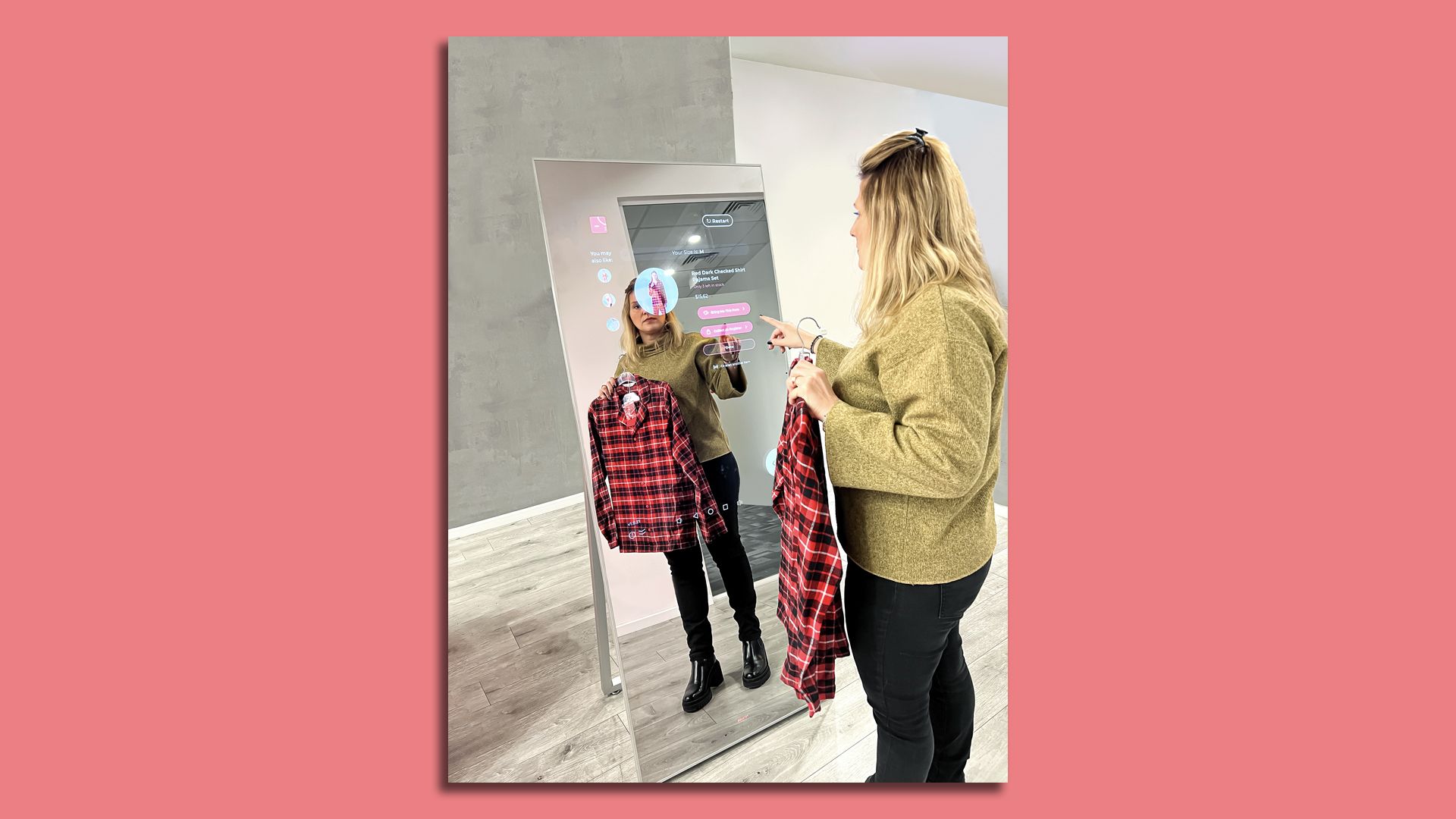 |
|
| The FirstLook Smart Mirror. Photo courtesy of MySize. |
| |
| A mirror that can tell you what size you'd take in various clothing brands is starting to make its appearance in retail stores — potentially obviating a trip to the dressing room, Jennifer A. Kingson writes. Why it matters: 80% of clothing returns are size-related. When people can try on garments virtually — either online or in front of a smart mirror in a store — they're less likely to return them and more likely to buy additional items. Driving the news: While lots of apps let you input your measurements and see size recommendations, the FirstLook Smart Mirror from a company called MySize is one of a small but growing number of AI tools that will match your figure to particular sizes from particular brands. - First, you use the sensors in your phone to map your body contours and store a "MySize ID," which is private to you.
- Then, you use your MySize ID to buy clothes online from participating manufacturers — like Levi's, Lacoste, Nautica and Gant — or in a retail store that has the FirstLook Smart Mirror.
- The mirror, introduced in February, is in more than 1,000 retail locations.
"The vision is to change the way people buy clothes," Ronen Luzon, CEO of MySize, tells Axios. - It's especially useful for buying children's clothes, Luzon says: Parents can update their kids' measurements every few months.
The big picture: Clothing sizes vary from brand to brand, and retailers lose a lot of money taking back returns. Lots of AI companies are working on the problem by making tools that will pinpoint your fit. - Retailers like Warby Parker, Nike and Asos let you find the right size in their products online.
- Augmented reality companies like Zyler let retailers offer virtual try-ons.
- A company called Bold Metrics has patented a Body Data NFT, which uses proprietary AI body modeling technology and works in the real world and the metaverse.
Keep reading. |
    |
| |
| |
| 2. The Business Roundtable's new energy agenda |
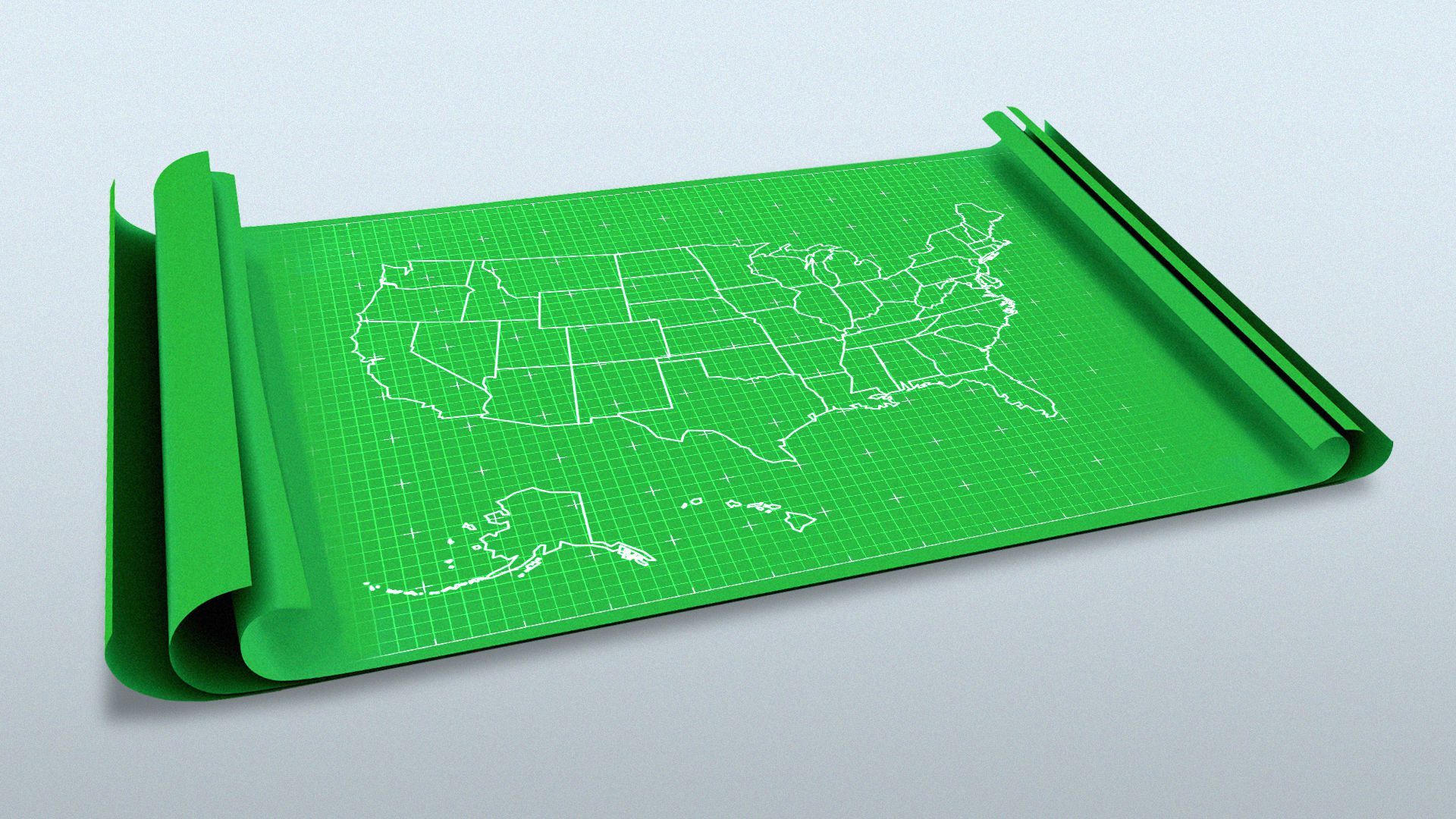 |
|
| Illustration: Annelise Capossela/Axios |
| |
| The Business Roundtable — a K Street powerhouse with friends in both parties — is making a pitch for policies that shore up fossil fuel supplies in the short term while transitioning toward clean energy, Andrew Freedman writes in Axios Generate. Driving the news: The group's new policy "roadmap," unveiled Tuesday and provided first to Axios, comes in response to high energy prices related in part to the COVID-19 pandemic and the war in Ukraine. The big picture: The roadmap, which largely aligns with some steps the Biden administration is taking or discussing, states that businesses need a "market signal to secure long-term investment" in clean tech, such as batteries and energy storage, advanced nuclear technologies, and hydrogen and electric vehicles. - It endorses policies to build more liquified natural gas export terminals and related infrastructure aimed at shoring up Europe's supply of natural gas.
- It also supports "accelerating" federal leasing programs both onshore and offshore in order to drill for more oil and gas but also to deploy more wind and solar installations.
- The Biden administration announced some new oil and gas leasing sales late last week, but the roundtable views these and other actions to date as insufficient to avoid the potential for a full-blown energy crisis.
Yes, but: Additional investments in fossil fuels carry the risk of moving the U.S. away from its climate goals of cutting emissions by 50% to 52% below 2005 levels by 2030, and reaching net zero by 2050. Read the full story. |
    |
| |
| |
| 3. California moves toward tougher online privacy rules for kids |
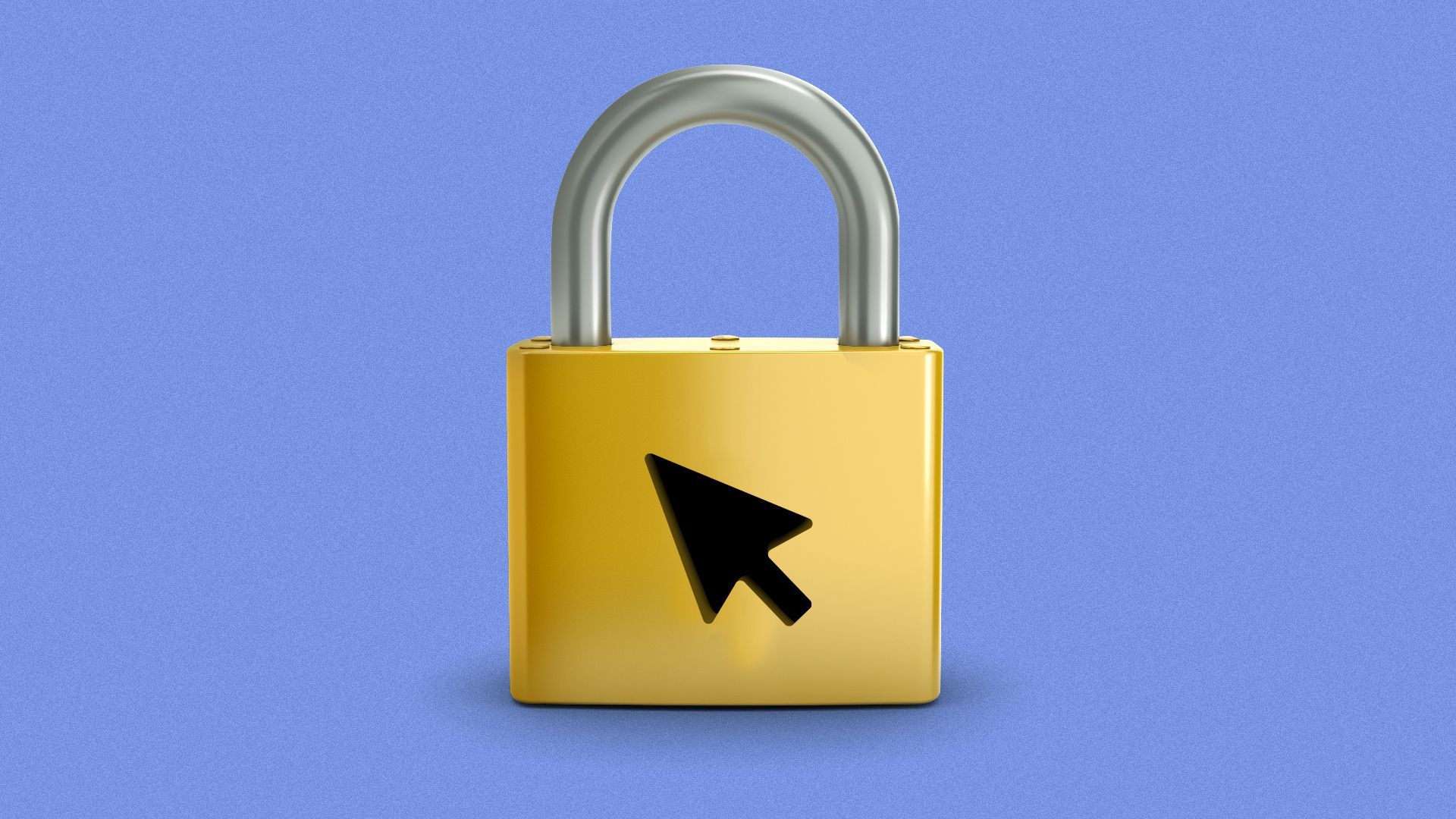 |
|
| Illustration: Aïda Amer/Axios |
| |
| California lawmakers are considering legislation aimed at requiring internet companies to design programs and apps for kids in ways that protect their privacy, Ashley Gold and Sara Fischer write. Why it matters: If the bill passes in California, many other states are likely to adopt similar measures, as happened with the state's last online privacy law. What they're saying: "Like so many parents, I grapple with how challenging it is to shield our kids from the harmful content and experiences they'll encounter online," Democratic Assembly member Buffy Wicks, a co-sponsor of the bill, said in a statement to Axios. - "California has the opportunity to lead the way in making the digital world safer for all American children, giving our kids the highest level of protection possible in the online world."
Be smart: In recent years, the U.K. and Europe have led the world in tightening privacy rules with measures like the General Data Protection Regulation. - The new California bill closely mirrors the U.K. code and would apply to companies headquartered in California.
Share this story. |
    |
| |
| |
| A message from National Grid |
| There is a better way to a fossil-free energy future |
| |
 |
| |
| National Grid is announcing our path to a completely fossil-free energy future. By using green hydrogen and renewable natural gas, we can achieve a fossil-free network by the year 2050. There is a better way to keep energy affordable, reliable, and clean. See how. |
| |
| |
| 4. What you said about the mask mandate ruling |
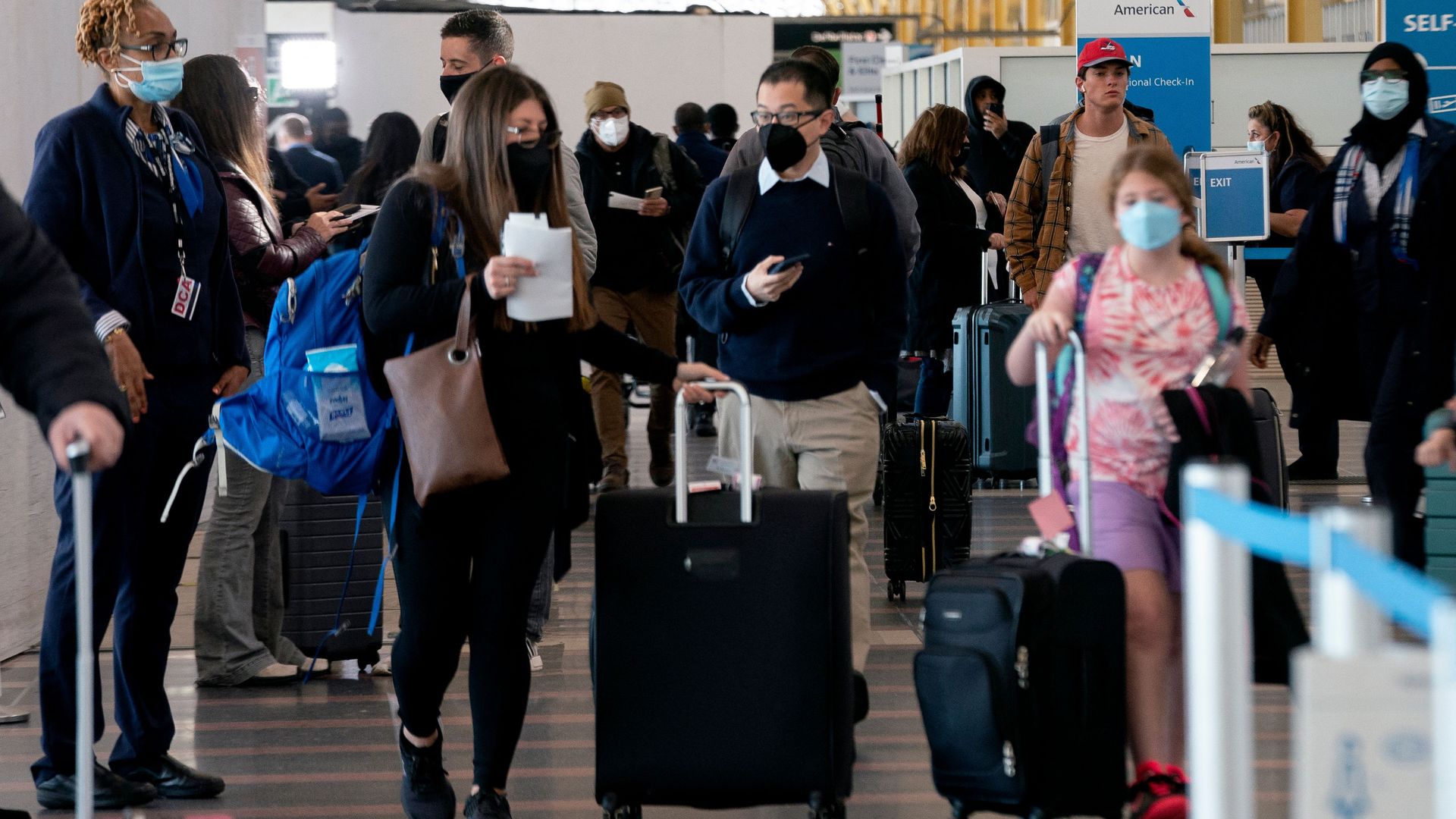 |
|
| Travelers walk through Reagan National Airport in Arlington, Va., on Tuesday, the day after the mask mandate on public transportation was struck down by a federal judge. Photo by Stefani Reynolds/AFP via Getty Images |
| |
| "Judge is an idiot!" — Elizabeth Steffen "It's about time the mask mandate was lifted!!!" — Desmond Pieri What you said: With a few exceptions, What's Next readers took a dim view of the decision by U.S. District Judge Kathryn Kimball Mizelle to strike down the Biden administration's mask requirement on public transportation. - "Another example of how one person can negatively influence public health and thus public safety." — Eugene Abravanel
- "How does a single federal judge have the authority to strike down a federal mask mandate? Shouldn't this require a much higher authority or a larger number of judges to do so?" — John Jordan
- "Has 80% of our population and our legislators been numbed by the duration of this insane pandemic? At least hundreds of people (if not more) are still dying each day from COVID in the U.S. and new strains are still viable." — Rory Bakke
- "The numbers are going up — this is NOT a political issue. And no one can make me NOT wear a mask in a sealed-up low-air-circulation plane or anywhere else I choose to do so." — Erin Kampa
- "I will wear a mask on an airplane as well as any other transportation if I even travel." — Paul Niemi
- "I probably would still be wearing a mask in certain situations if I didn't live in the state of Florida, which has a very lax policy." — Deanna E. Fox
|
    |
| |
| |
| 5. Reader photo of the day |
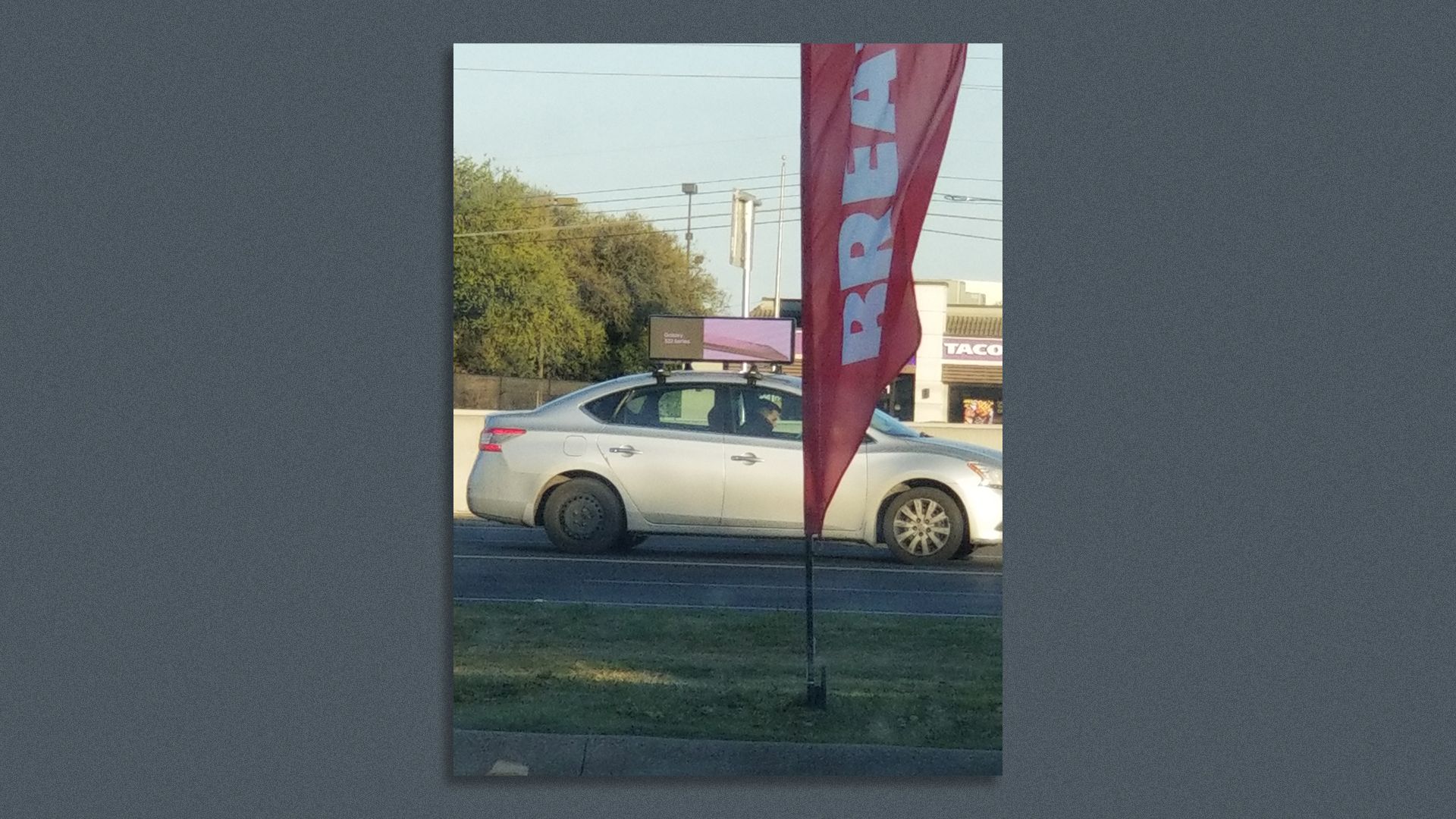 |
|
| Photo: Justin Morgan |
| |
| What's Next: Advertising billboards on passenger cars Justin Morgan writes: "Here is a picture I took while waiting at a drive-thru restaurant in Austin, Texas, where I live. The picture is of a technology that I think will be 'next' in the future: a digital billboard atop a typical car! "I don't know for certain, but I think the car is used for a rideshare service. With the billboard feature (and the fact that Lyft is showing actual taxicabs in their app), I think that rideshares will greatly resemble the cabs they compete with in the future." Jennifer's thought bubble: Even if you don't drive for a rideshare, there are opportunities to earn money by turning your car into a billboard. (Here's a guide to some of them and a New York Times article about the phenomenon that I edited.) |
    |
| |
| |
| A message from National Grid |
| There is a better way to a fossil-free energy future |
| |
 |
| |
| National Grid is announcing our path to a completely fossil-free energy future. By using green hydrogen and renewable natural gas, we can achieve a fossil-free network by the year 2050. There is a better way to keep energy affordable, reliable, and clean. See how. |
| |
| Was this email forwarded to you? Get your daily dose of What's Next magic by signing up for our free newsletter here. |
 | It's called Smart Brevity®. Over 200 orgs use it — in a tool called Axios HQ — to drive productivity with clearer workplace communications. | | |









No comments:
Post a Comment